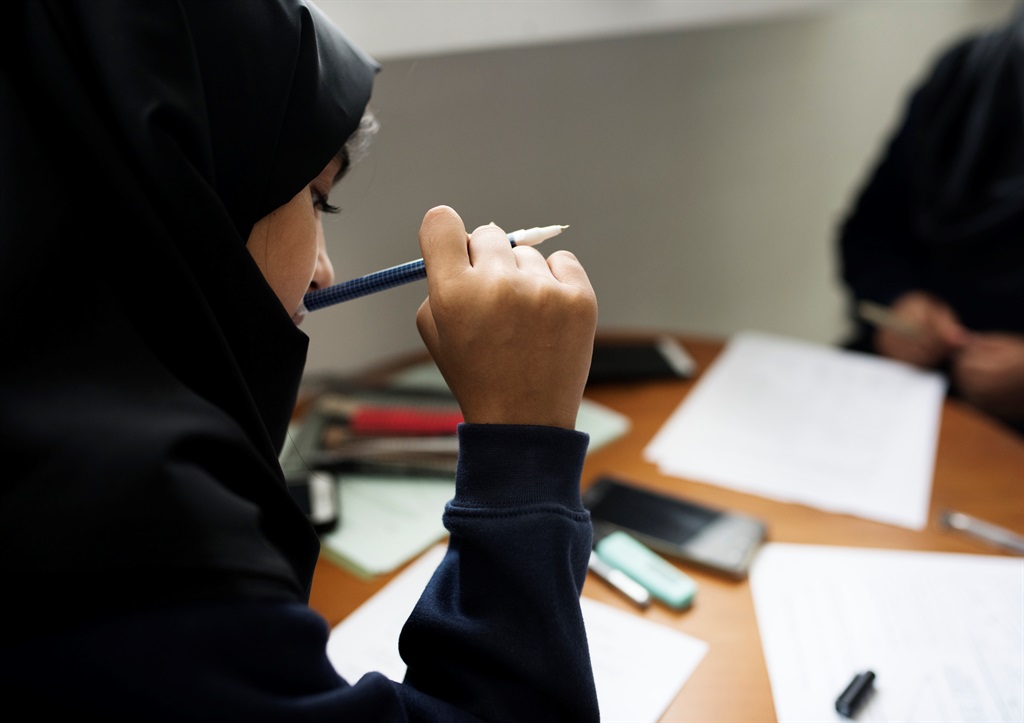
Jeppe Girls High School in Johannesburg is in the news because certain dress-code policies are deemed discriminatory. Parents have threatened legal action, and the Gauteng Education Department had to intervene after allegations that Muslim pupils faced disciplinary action for wearing head scarves at school.
Other schools have been in the news because of hairstyles, stovepipe trousers and a plethora of other issues that seem to go against their disciplinary codes.
Arguments that dress codes contravene a school’s disciplinary codes, constitution or code of conduct must be re-examined. Can schools still afford to have such a regimented view about uniforms? Since when is this an indicator of bad conduct or bad discipline under learners? Can dress code even be an indicator of scholastic performance, as some may claim?
The conduct of learners on school premises should be the focus.
Every day, teachers are attacked, insulted and threatened by learners wearing their school uniforms and having hair styles that conform to all known and unknown school rules. Did the Zeerust stabbing, in which a teacher was killed, happen because of dress code issues or because of deep-seated behavioural issues?
Teachers fear for their lives and this is not because learners use nail polish, make-up, headscarves or certain types of shoes. Instead, teachers have to deal with learners who, regardless of socioeconomic status, come out of toxic homes where parents have reneged on their duty to teach the child basic manners and respect for others.
Interviews conducted with some first-year students at Growth Institute show that there are some undercurrents to be considered:
1. First, there are small pockets of learners who believe that they have to misbehave because they are in the midst of some struggle politics. They believe that the government can be forced, through violence, to ensure service delivery, housing and infrastructure. For this group, schools and teachers are symbols of a state that betrayed the youth and that has to take the brunt of the youth’s anger.
2. Second, there are groups who consider bad behaviour in schools as a badge of honour. They argue that older generations also gave their teachers a hard time. If, then, Grandpa could have given his teacher some form of backchat, then why can this generation not give teachers a hard time, too? This group argues that there is no harm in their actions and that society overreacts to their innocent horseplay.
3. A third group is made up of hardcore gangsters and they see the school as an extension of their territory. They own the right to sell drugs, alcohol, and blackmail a captive audience (other learners) much in the same way that prison gangs measure out their turf and battle for more control.
4. The phenomenon of group thinking plays a powerful role in the lives of school learners. To be accepted by peers they sometimes have no choice in how they behave at school. It is simply a matter of “either you are with us, or you are against us”. Groupthink in schools is no longer just another theory to explain why South Africa sees so much school violence.
5. Learners feel that teachers do not care whether the student will pass a grade or not. In some schools, teacher competency levels are shockingly low. Learners tell of teachers who are not able to explain concepts and who promptly threaten with punishment if a learner is “stupid”. From time to time the media report about teachers who do not come to school or who attend to personal business while they are supposed to be teaching.
6. Next, how can one teacher control a class of more than 50 learners? It has been proven more than once that underachievers in large classes are ignored and moved to some outer planet where they have to figure things out by themselves. Underachievers experience frustration and they become angry at the whole education system. No matter how good another teacher in another subject is, all teachers are seen as having an agenda of oppression against some learners.
7. Underachievement and toxic households are not the only reason for ill-discipline in schools. In some of the upper-crust schools, a sense of entitlement can be linked to discipline issues. Some learners really think that their parents can buy them out of any situation. Some also think that they do not need schooling because their parents are wealthy enough so that the children never have to do a single day’s work.
We can conclude that disinterested teachers breed disinterested learners, and that overworked teachers breed disinterested learners. On the other hand, teachers see the results of contemporary parenting skills.
And dress codes cannot hide the ugly underbelly of what teachers have to deal with on a daily basis.
• Peter van Nieuwenhuizen is chief financial officer of the Growth Institute, a private college offering a range of commercial, tourism and hotel management programmes.




 Publications
Publications
 Partners
Partners








